Initially I set out to document Skid Row historically, better than anyone else has. I wanted to thoroughly capture the neighborhood. What I didn’t know would happen, was that I’d fall in love with the people and the place and that it would change my perspective on life all the way around.
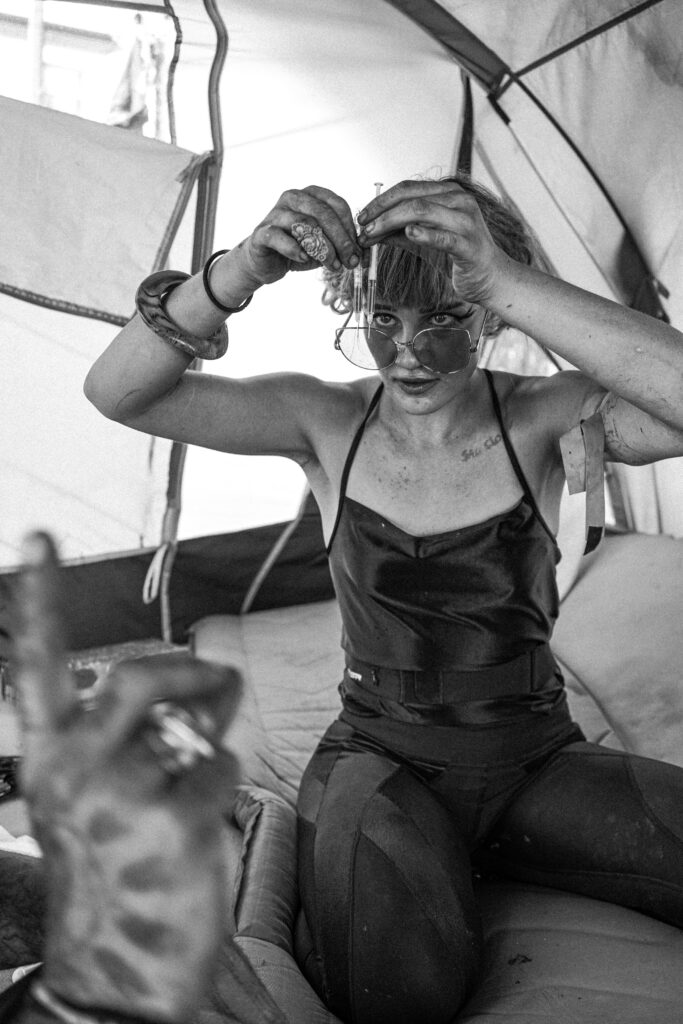
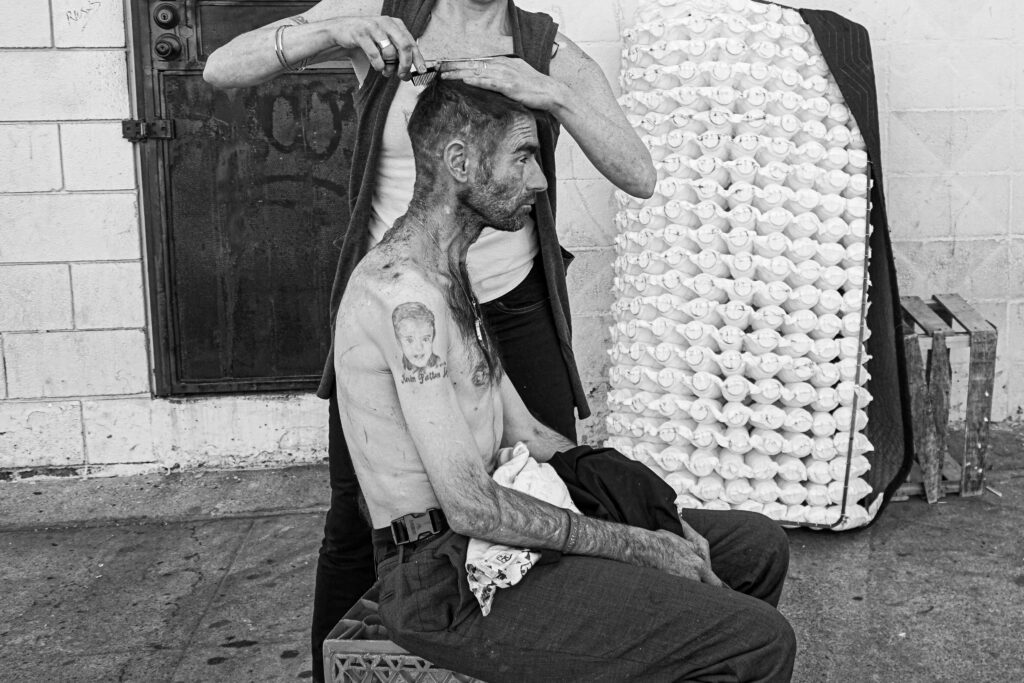
I’ve never really thought of myself as a photographer. I’d done some writing for television & comedy, I did some acting. A lot of people don’t know about my other life. I’ve been filming since I was a kid and wrote my way into sketch comedy for years. Around then I created Suitcase Joe quietly and anonymously on the side because I needed another outlet. There was a time when I was living something like a dual life. Going into Skid Row was my initial foray into taking photography seriously.
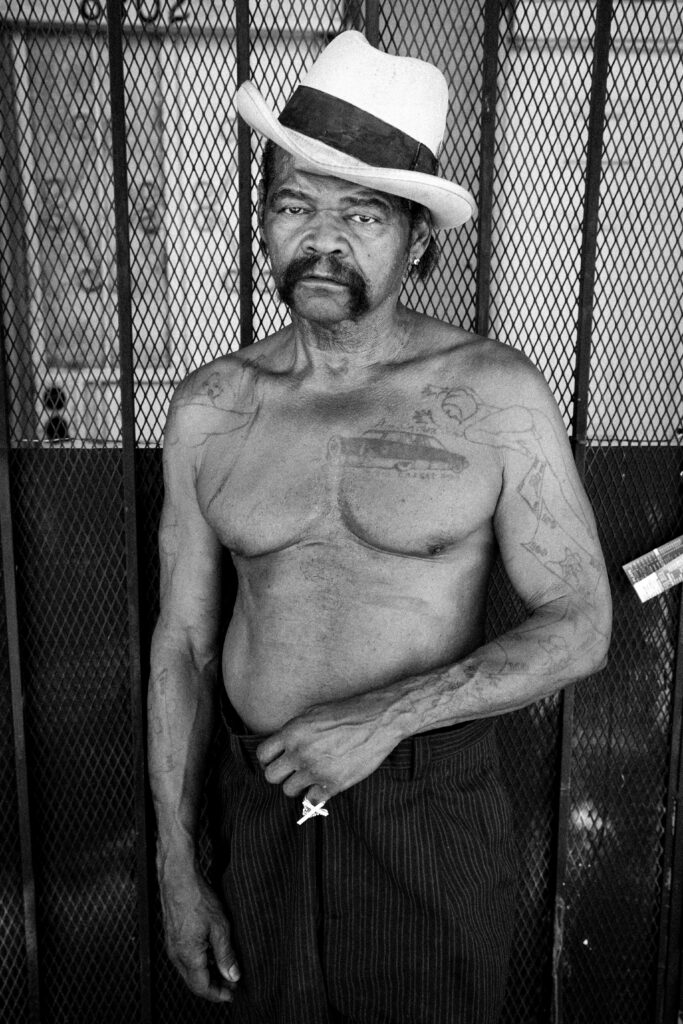
I love to capture people with life and stories in their faces, their eyes, their environment.
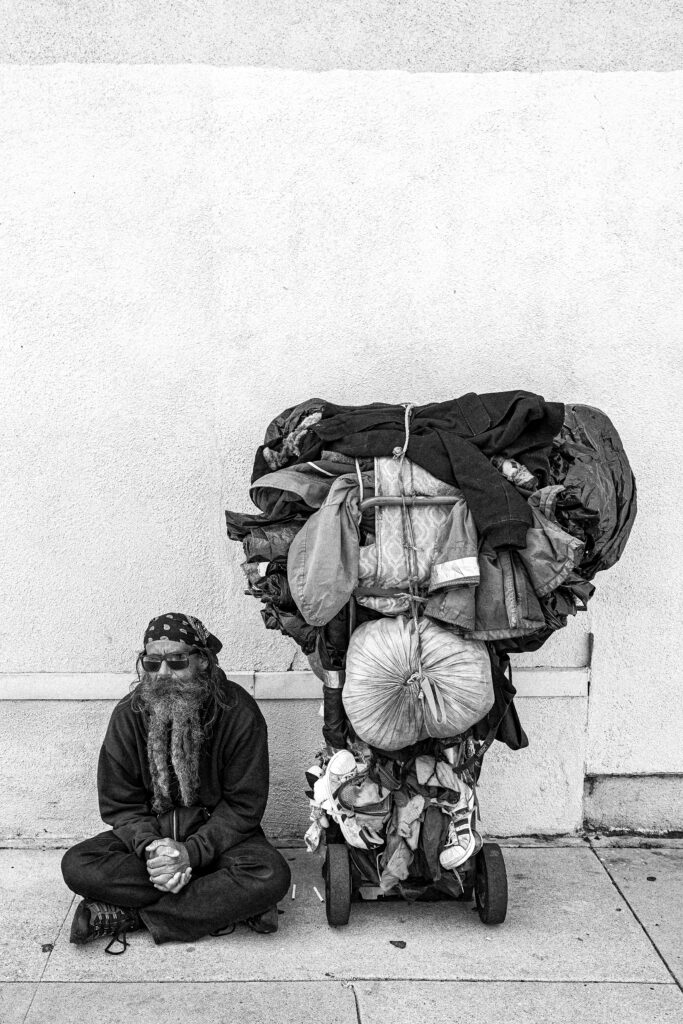
But what speaks to me are the worlds overlooked by most people. I’m always searching for the unseen, between the cracks and crevices of life.
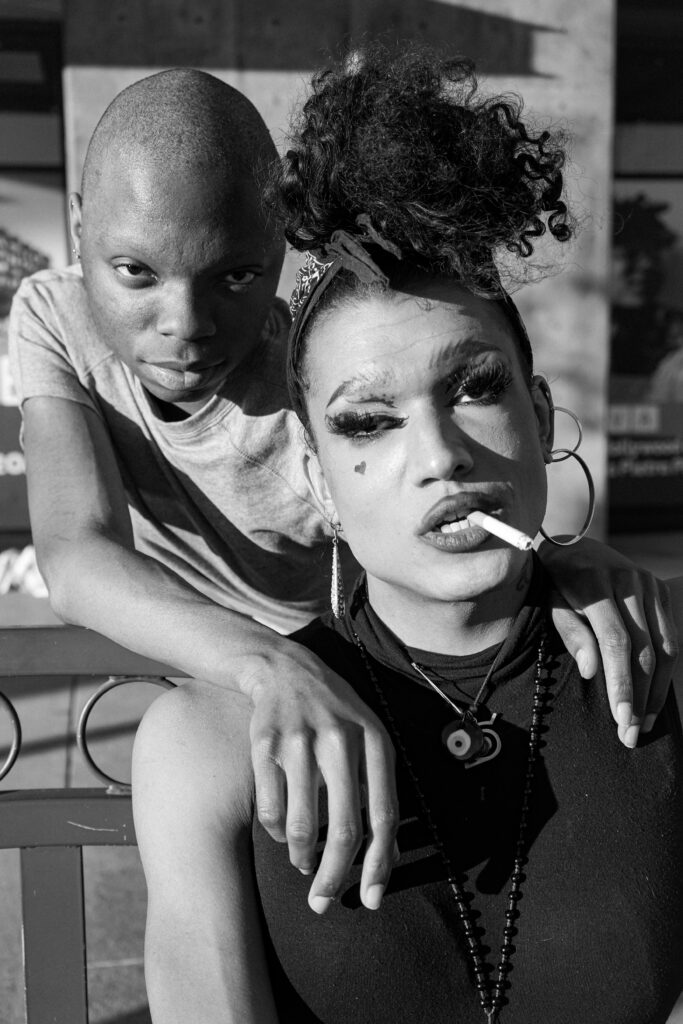
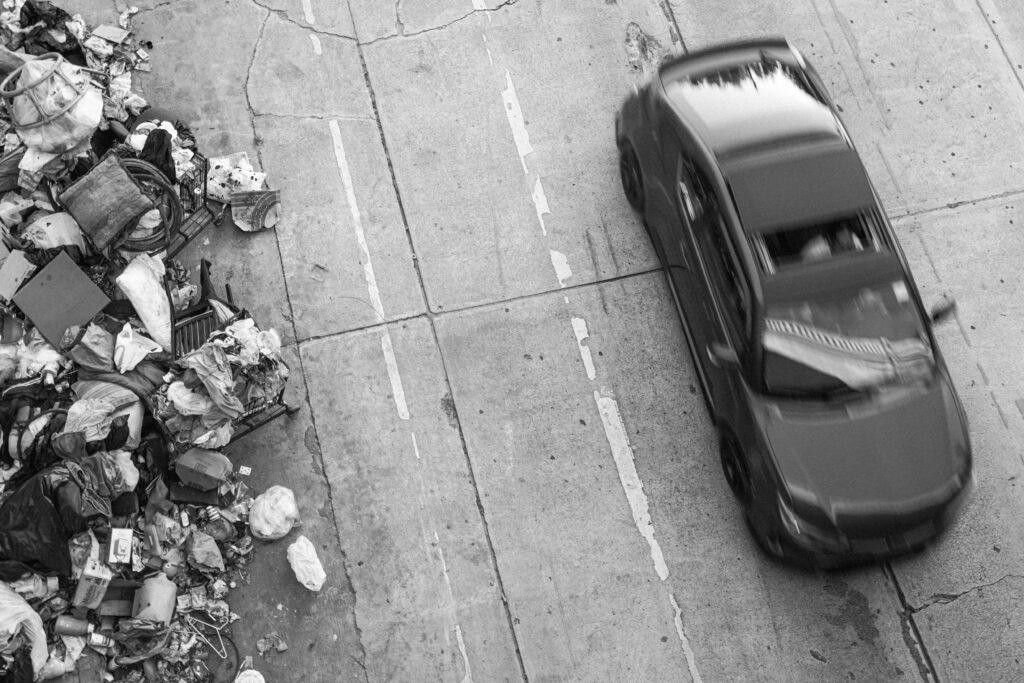
I loved my career early on but had my fill at a point. I was ready to do something a little more meaningful and profound. As I started going to Skid Row and photographing people and asking them their stories, and then started sharing them on my platform that grew, I realized I was learning so much about human behavior and people and society, everything. It was like a college education you could never really get unless you just dove into the fire. Over the years I kept learning more and that made me ask questions.
I remember coming home one day and thinking, Man, that’s crazy. That guy was so smart. And then I thought, Why would I think that he wasn’t smart? Just because he’s living on the streets? It’s a wheel of life events that happened to that person, leading him to being unhoused. Do I think of people in the streets as not as intelligent as people at homes? Because I know some f*cking idiots who live in homes…
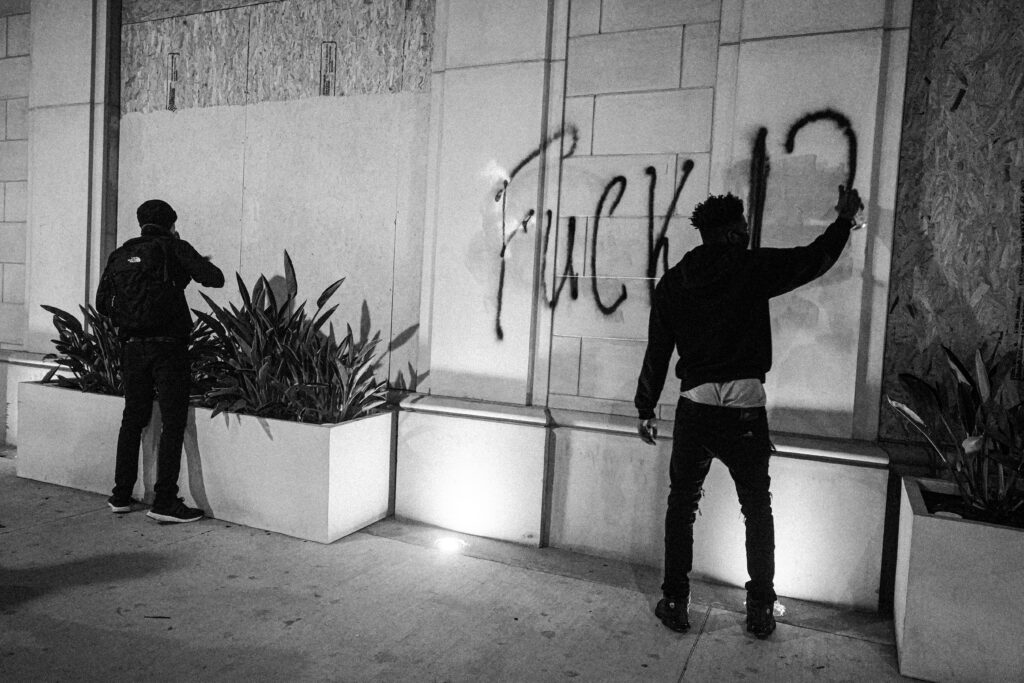
<Haha>. But thoughts like that started to make me pause about how we perceive criminals and why somebody becomes one, all that. It turned me upside down. I spent hours by myself thinking about how I’ve been programmed to think a certain way and how it’s not right.
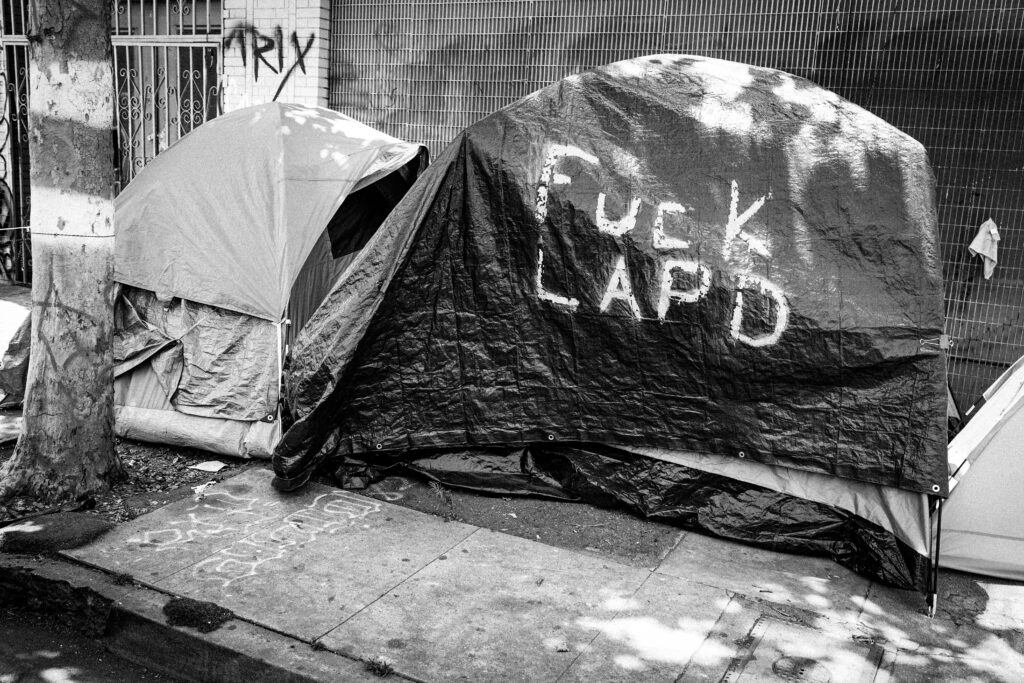
Having seen all around the birth lottery, from being successful in media and rubbing elbows with the 1%, to witnessing what systemic racism or a lack of options can do to a human… What I learned made me care in a way I didn’t know I could ever care.
I spent 7 or 8 super solid years hyper-focused on Skid Row. After some time it felt like time to move outside of there. I made an effort to meet people who were marginalized or overlooked but kept searching for what makes them special.
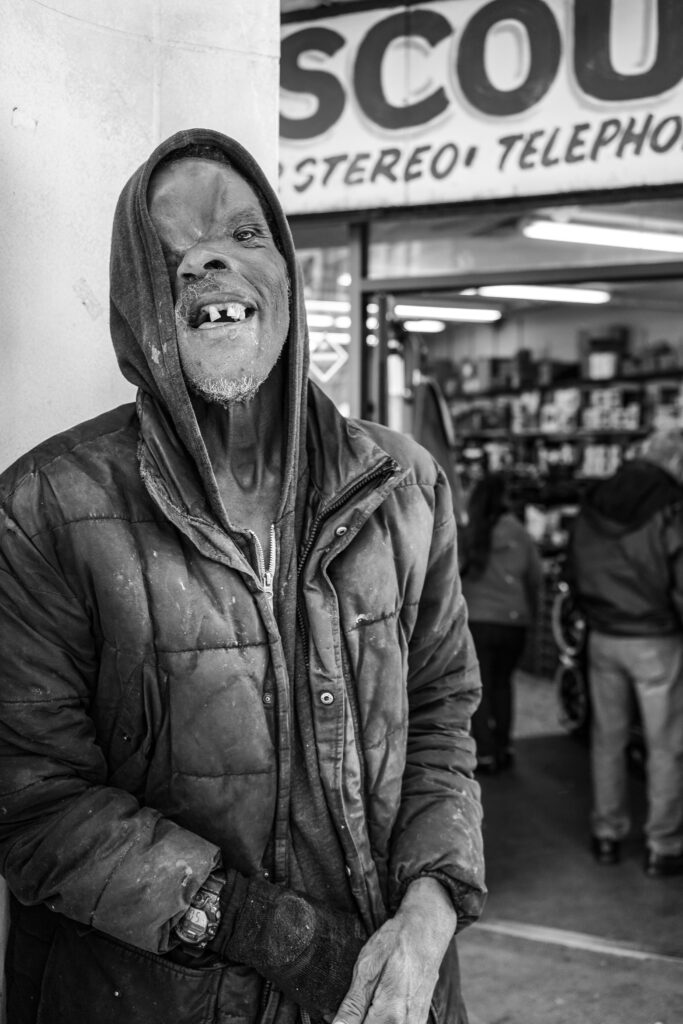
There are elements of activism in my work and approach. I believe that it’s better to converse with those you disagree with in a way that doesn’t provoke them to go to war with you. If you want to make change, you have to be able to have conversations with people and present something they identify or relate to. That’s when you start to turn people’s hearts.
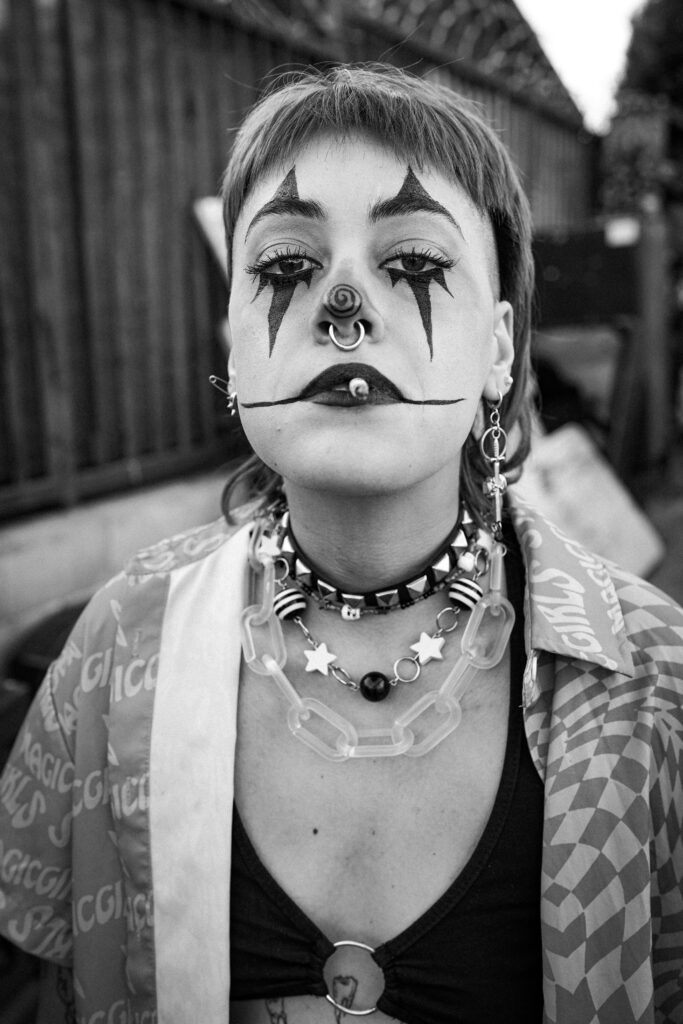
After shooting consistently for almost a decade, I always recommend other photographers/artists to get to know your subject. And that doesn’t mean you have to spend your life with them. But get out there and talk to people and learn a little something about them. People say they can see something in the eyes of the people I take photos with. The truth is that I ask people about themselves before shooting because I’m genuinely interested, and try to capture whatever that essence is when I snap their photo. I think it’s really important to connect with your subjects. Hopefully that’s what keeps my work non-exploitive as well.
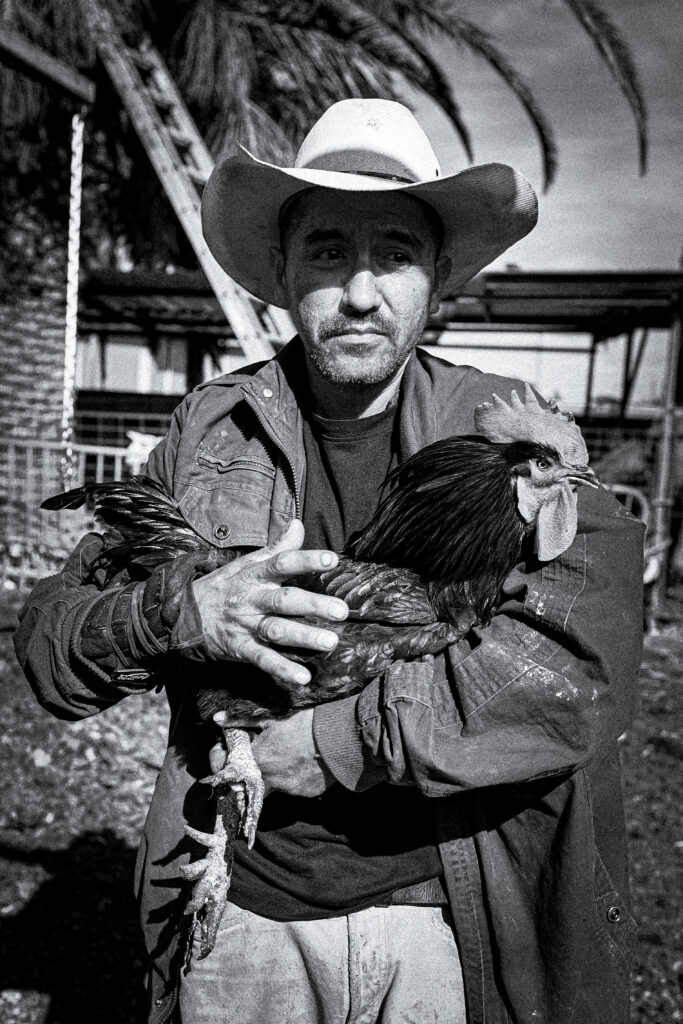
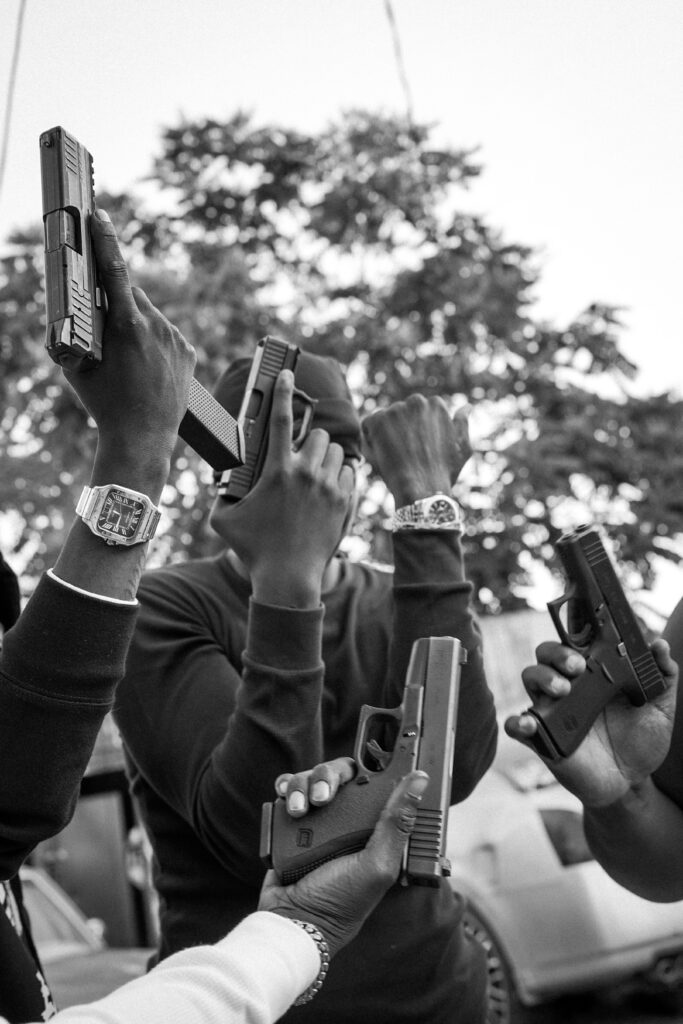
I have a little office in my house that I work out of. Everything’s scaled down as minimal as can be. It’s true, that saying; the more you own, the more it owns you. I did that for a minute; had the fancy house and cars… I scaled way back and, man, I feel so free and so happy again. My advice to everyone is to let go of all that sh*t. You don’t need it. You need the basics, and everything else, get rid of it.
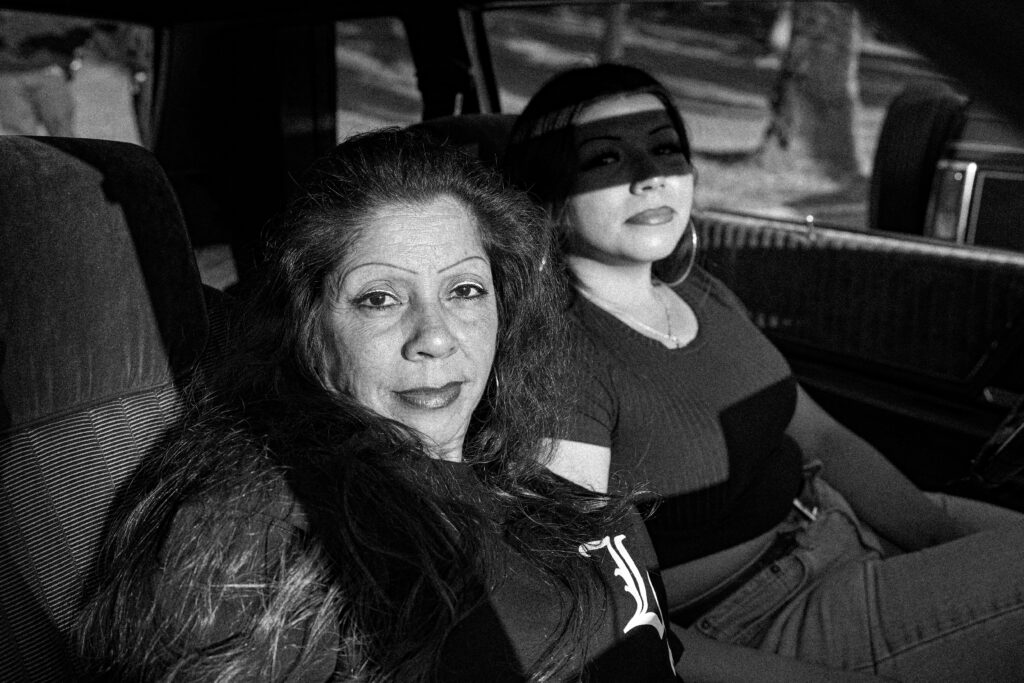
Around a year ago I put out a book called Grey Flowers, where I spent time on foot all over Los Angeles. I was very depressed when I made it. Close to ending my life. But before I did that, I wanted to create a book of real people worth shedding light on. I shucked off all my responsibilities and walked in different directions every day for 6 months. I took photos and met people and fell in love with life and the world again.
Grey Flowers is kind of a double play on words; black and white photography, of all these beautiful people across Los Angeles, and how we’re all a little grey on the inside. However we dealt with that, we were all grey flowers. At that time I was a grey flower.
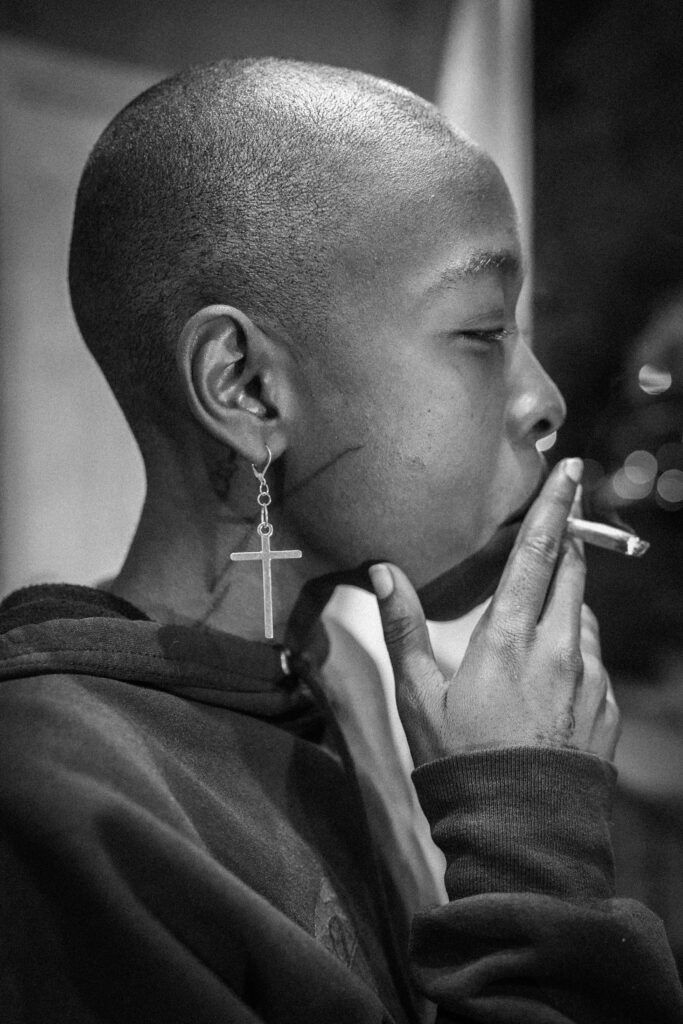
Oddly what has influenced my photography the most has been reading and writing. I was fascinated with the whole train-hopping culture as a kid, I think I’ve always had a deep fascination with the fringe world and people on the outside. And when I started taking photos, there was a part of me that wanted to capture what I used to read about.
I love a photo that tells a story. But I’ve come to realize my photos are better when you can read about them too. The impact is so much deeper because you can fully grasp a person’s moment in life. I think writing is so important for my art.
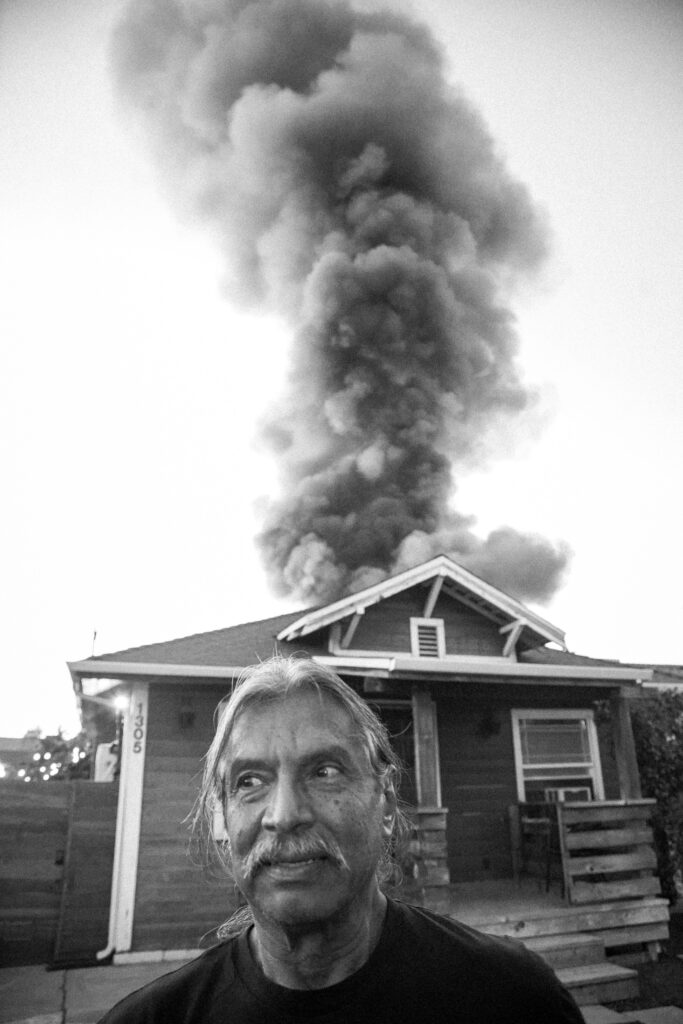
That’s a big part of my work too; going into these communities, some of these people are dying to speak on something. No one’s really asked about them and they’ve got something to say.
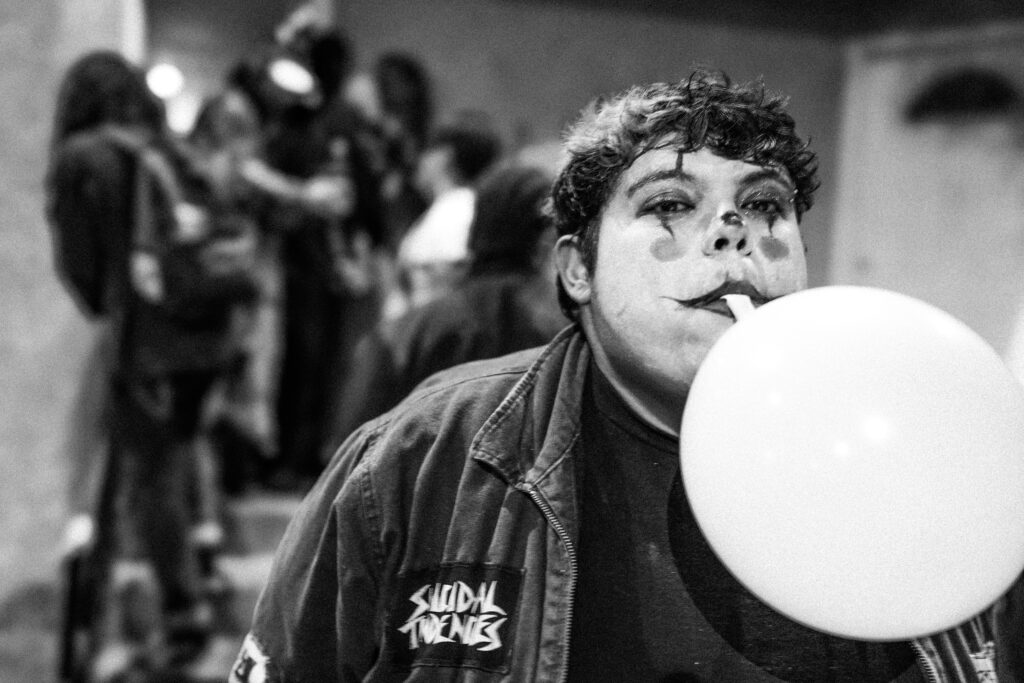
I got into music very young, a lot of punk and hardcore outside of DC. Hung out with skaters and went on tour with bands. As I’ve gotten older, I’ve realized all that stuff speaks to me still. I’m 45. Everything I loved as a kid – zines, table books, a rare print, a good show, whatever’s explosive & current – still makes me excited and happy. I think that’s where the heartbeat of life is for me.
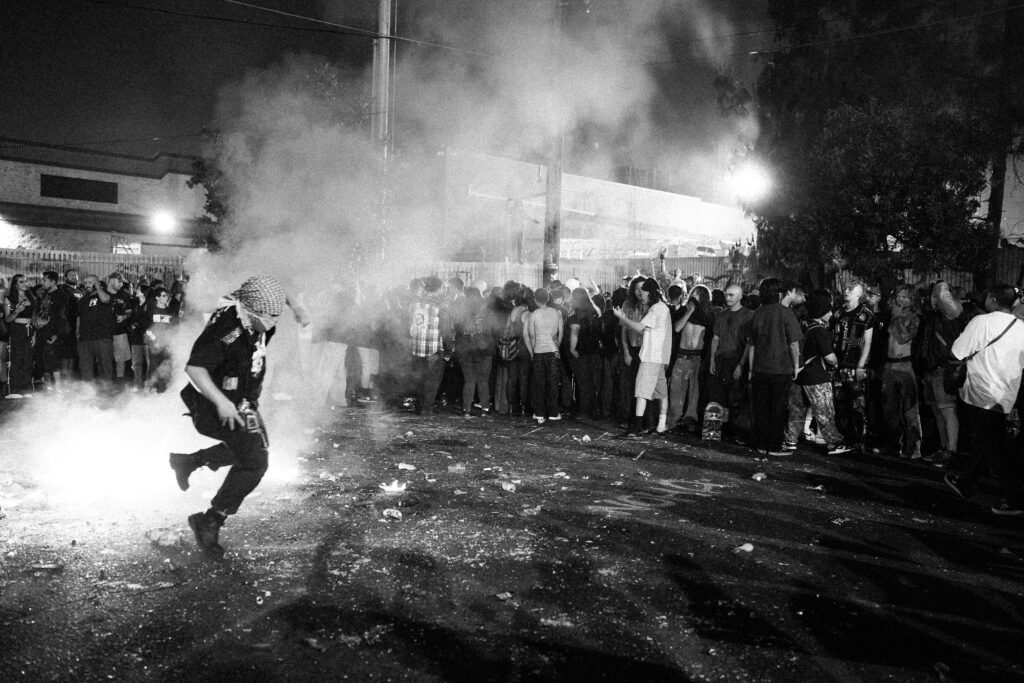
Something I’ve been learning on my latest project is a lot of people who have been ostracized in their communities for feeling a certain way, tend to find real community in these subcultures. That can be punk, skateboarding, trans & queer, graffiti, metal, whatever – when you step inside of these communities, people are so accepting of that thing outside of yourself you’ve been so b*st*rdized or bullied for. And then everyone around you is laid back or makes you feel okay with being who you are out loud. Even if all these subcultures and communities are different, that exists in all of them.
My work is changing now and to further it, I need to step in front. This upcoming film will be my first time doing that.
– Suitcase Joe